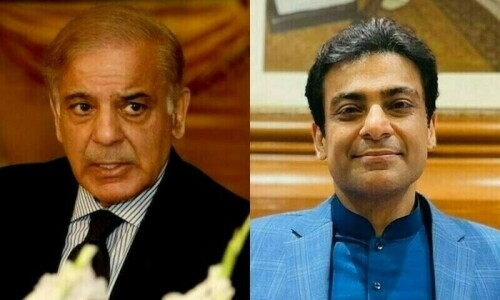ISLAMABAD Arrest of Jundallah leader Abdolmalek Rigi and his deputy Hamza during a flight from Dubai to Kyrgyzstan marks a lucky break for Pakistan, which has been long accused by Iran of hosting the terror group's ringleader, and offers an opportunity to ease the tense relations between Tehran and Islamabad.
Iran, despite repeated denials by Islamabad, always alleged that the group operated from Pakistan's soil and that its leader Rigi was based there and carried Pakistan's national identity card by the name of Saeed Ahmed, son of Ghulam Haider.
The militant leader had been educated at Karachi's Binnori Town seminary, which was school to many of the Taliban leaders.
Rigi is believed to have camouflaged his nationalist movement in a sectarian colour to curry favour with Pakistani sectarian groups.
Iranian Interior Minister Mostafa Mohammad Najjar, who visited Pakistan in October following an attack on elite Revolutionary Guards in south-western Sistan-Balochistan province along Pakistan's border, is said to have handed over proofs of Rigi's travel to Pakistan.
“We have documents that show (Abdolmalek) Rigi travels readily to Pakistan ... we are here to ask Pakistan to hand over Rigi to Iran,” Mr Najjar had said in a statement.
Although, the attack on Revolutionary Guard incensed the Iranians and evoked the strongest reaction, bilateral relations between the two countries had been on the slide ever since the group was formed in 2002 stepped up cross-border raids out of their havens along Pakistan-Iran border targeting Iranian security personnel and civilians.
The Zahedan attack in 2007 on Revolutionary Guards was followed by emboldened attacks by the outlawed organisation, but unfortunately some of the operations that ensued involved the use of Pakistan's soil, including the abduction of 21 Iranian drivers in 2007 from Chabahar, who were later freed by Pakistani forces.
It is also believed that the group brought 16 Iranian policemen kidnapped from southeastern Iran to Pakistan and killed them.
In view of enhanced Iranian concerns, Pakistan had offered Tehran with increased intelligence sharing and intensified border patrolling.
Pakistan had been insisting that Rigi was not in Pakistan and Jundallah operated in 'triangle region' between Afghanistan, Pakistan and Iran making it harder to act against the group.
The 1,000 km stretch between Pakistan, Iran and Afghanistan is a rough terrain making patrolling extremely difficult.
Extradition of Abdolmalek Rigi's brother Abdolhamid Rigi by Pakistani authorities to Iran in June 2008 was the highlight of cooperation between the two countries on the contentious issue of Jundallah.
National Assembly Speaker Fehmida Mirza, during her recent trip to Tehran, had disclosed at a meeting with Iranian Foreign Minister Manouchehr Mottaki that a number of Jundallah militants were arrested in Pakistan and extradited to Iran.
US COOPERATION
Iran had always alleged that Jundallah was financed by the US government to destabilise their country.
Investigative journalist Seymour Hersh revealed in another report in July 2008 that US Congressional leaders had secretly agreed to former president Bush's $400 million funding request, which gave the US a free hand in arming and funding Iranian terrorist groups such as Jundallah militants.










































Dear visitor, the comments section is undergoing an overhaul and will return soon.